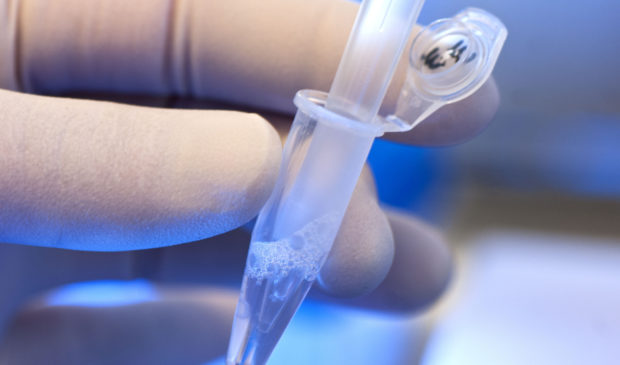Newsletter Signup
The Austin Monitor thanks its sponsors. Become one.
Most Popular Stories
- Firefighters to seek firing of Chief Baker
- Office slowdown sparks new downtown housing ambitions
- City leaders evaluate surprising ideas for water conservation
- Downtown Historic Resource Survey eyes seven new districts eligible for designation
- With cap of $687M, bond task force to weigh $4.4B in city needs
-
Discover News By District
Popular Whispers
Sorry. No data so far.

The sad state of DNA testing in sexual assault cases
Tuesday, November 8, 2016 by Jack Craver
It might take a while for Austin to clear its backlog of more than 600 batches of DNA evidence related to sexual assaults.
Austin Police Department Chief of Staff Brian Manley told members of the Public Safety Commission on Tuesday that he could not say how long it will take for the DNA evidence to be processed by Dallas County’s forensics lab. City Council voted last week to approve a six-year contract with Dallas County worth up to $3.6 million as a result of the recent closure of the Austin Police Department’s own lab due to evidence contamination.
At the very least, Manley said, it should not take the full six-year life of the contract, on which the Dallas County Commissioners Court is scheduled to vote on Nov. 15. The department sought a multiyear contract, he said, so that the lab would not have to go through the process of having the contract re-approved by Dallas County officials.
Manley also said he anticipated Austin’s own lab reopening at some point next year and noted that the recently approved city budget includes funding for seven additional scientists to analyze incoming evidence.
Other legal and law enforcement experts told the commission that DNA testing was a regular headache for just about everybody involved in the criminal justice system.
“I have people who have been in jail for a year or more (awaiting trial) just because we’re waiting for the DNA,” said Judge Karen Sage of the 299th Travis County Criminal District Court.
Sage recounted a recent case of a man with a lengthy record, including past sex crimes, who had been held for a suspected sexual assault. She was forced to dismiss the case, she said, after he demanded to go to trial before the DNA evidence could be analyzed.
“He had a sixth amendment right to a speedy trial,” she said, adding that the backlog was affecting both public safety and defendants’ constitutional rights.
In addition to contracting with the Dallas lab, Sage encouraged the city to look for “any resources we can put forward towards catching up with that backlog, both from the survivor’s point of view and the defendant’s point of view.”
Kent Anschutz, a defense attorney, said that he is currently representing a man charged with murder who has been in jail since January 2015, awaiting the results of a DNA test. His client had been granted a bond to be released, he said, but was still in jail because he is suspected of a separate parole violation.
If not for the parole issue, said Anschutz, “He’d be out here.”
DNA evidence is certainly not the only barrier to prosecution, however.
According to Detective Sandra Benningfield of the APD’s adult sex crimes division, only 276 of the 1,806 reports of sexual assault that the department dealt with in 2015 led to an arrest.
A lack of victim cooperation is a common reason that law enforcement doesn’t proceed with a case, she said. While police will continue to investigate and gather evidence in cases where a victim does not cooperate, a case will not be prosecuted unless the victim is willing to testify, she said.
Travis County Assistant District Attorney Dana Nelson later explained that DNA evidence linking the suspect to the victim is not “legally sufficient” grounds for prosecution if the victim is not willing to testify in court that the sexual contact was nonconsensual.
Considering how few victims even report their crimes to the police – Nelson said only about 10 percent do – the proportion of sexual assaults that lead to prosecution is minuscule.
Benningfield and Nelson both said they are understaffed, a concern that resonated with Public Safety Commission Chair Rebecca Webber, who said she intends to introduce a resolution calling for an additional sergeant and four more investigators to focus on sex crimes.
On Tuesday, the Travis County Commissioners Court will also be receiving an update on the DNA backlog.
Photo from University of Michigan made available through a Creative Commons license.
The Austin Monitor’s work is made possible by donations from the community. Though our reporting covers donors from time to time, we are careful to keep business and editorial efforts separate while maintaining transparency. A complete list of donors is available here, and our code of ethics is explained here.
You're a community leader
And we’re honored you look to us for serious, in-depth news. You know a strong community needs local and dedicated watchdog reporting. We’re here for you and that won’t change. Now will you take the powerful next step and support our nonprofit news organization?


